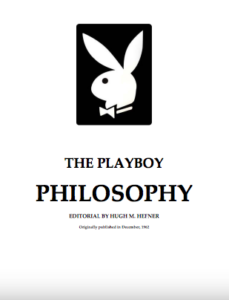So much is written about the various generations. The latest piece, I now read, by Rowan Dean, Australian Editor of The Australian Spectator under the heading ‘Millennial Marxism’, comments:
“The Millennial Generation, born between 1980 and 1996, is the smartest, best-educated, most tech-savvy generation that has ever walked this planet. Australian Millennials have grown up in the longest single period of economic growth in our history. They are the first generation in which most expected to attend university as a matter of course. Most of them have lifestyles their parents could only dream about, having been told from birth how wonderful and special they are, growing up in a world where every child gets a prize and no-one’s allowed to fail.
Only the oldest of them would remember John Howard, Bob Hawke and Paul Keating in their economic reformist primes, let alone the political geniuses who made the 1980s and set the scene for the fall of communism and the Berlin Wall; Ronald Reagan and Margaret Thatcher.
It’s no surprise a YouGov Galaxy opinion poll, commissioned by the Centre for Independent Studies, has found six out of ten Australian Millennials believe socialism is a good thing, capitalism has failed, and that Australian workers today are worse off than forty years ago. Furthermore, those polled showed abject ignorance about the reality of life under communism and socialism, let alone Whitlamism. Few even knew of murderous communist leaders Stalin and Mao, despicable characters who imprisoned, tortured and killed millions of their own citizens who, like Millennials, dared to try and think for themselves.
We shouldn’t be surprised. This most cossetted, pampered and, frankly, spoiled generation has had everything handed to it on a plate. In those rare moments when they aren’t taking selfies or posting their bowel movements on Instagram, they rarely show a skerrick of interest in the world beyond, let alone its history and what made us who we are today.”
The rest of this insightful editorial is available at The Australian Spectator.
This started me thinking to what generation do I actually belong? Further research finds that I’m too young to be what is described as the Lost Generation and that I fall into the Silent Generation (mid-1920s to mid-1940s).
So much is written about the X, Y, Z and Millennials one could be excused for suspecting that the world wasn’t invented prior to the 1950s. Any earlier generations appear to be dismissed, under those terms ‘lost’ or ‘silent generations’, particularly the latter with the comment that it produced no US Presidents, although, it does list a few notables.
Any easily available material gives little sparkle to those ‘silent years’ of 1920–1940. Naturally, I’m somewhat miffed that my generation is so summarily dismissed, in this manner.
Still miffed, I went in search of more optimistic news and appealed to a higher authority, in the form of the noted philosopher Hugh Hefner. This was much more encouraging as he describes that so-called silent era as a far more fucund era than Google or Wikipedia ever imagined.
 Let me pull a few assorted quotes from The Playboy Philosophy as published in December, 1962. (Remember that during that era, the word ‘man’ referred to ‘mankind’ – men and women.)
Let me pull a few assorted quotes from The Playboy Philosophy as published in December, 1962. (Remember that during that era, the word ‘man’ referred to ‘mankind’ – men and women.)
“The first 30 years of the 20th century were characterized by our unbounded faith in ourselves, both individually and as a nation. We were enjoying the results of the industrial revolution, and if the streets were not literally paved with gold, it was only a technicality. It was a time of confidence and enthusiasm; it was a crazy, romantic, wonderful time, when most men believed they could lift themselves by their own bootstraps, even if they didn’t yet own a pair of boots.
“These were the years of the Uncommon Man — when uncommon ambition and needs were the rule rather than the exception. These were the years of the great national heroes, both fictional and real.
“The era reached its apex in the decade now fondly remembered as the Roaring Twenties. After the Great War, a new sophistication and cynicism spread across the land, but the Twenties were a good deal more than Sheiks and Shebas, bathtub gin and the Charleston. It was a yeasty time, a time of innovation and adventure, when new notions and ideas were accepted almost as quickly as they were born — a period of important growth in science and the arts. It ended with the stock market crash late in 1929.
Then came the Depression.
“By Depression’s end, the press had even come up with a suitably negative label for excessive intellectualism and academic accomplishment: ‘Egghead.’ In place of Picasso, we were given Norman Rockwell and in place of literature, the Reader’s Digest. The Thirties did witness the positive emergence of greater concern for one’s fellow man and the immense strides made in the labor movement, but even these worthwhile accomplishments had their negative aspects, for they further de-emphasized the individual in favor of the group. Concern for the collective many is not always the same as concern for each and every separate member of society taken as the single person, with his individual hopes and dreams, desires and aspirations. To be an average guy, a part of a group, one of the gang became a pretty good thing to be. During the Depression, concern for the Common Man turned into deification of the Common Man, and of common ideas and common taste. Who needed an education? Wasn’t common sense what really counted? There was no room in the Thirties for the uncommon act, the uncommon accomplishment, the uncommon mind or the Uncommon Man.
“There are very few great heroes in the Thirties, where there had been many in the Twenties.
“Whether the country would have recovered from the psychic depression as readily as it did from the economic depression will never be known: The Second World War ushered in a half decade demanding a high degree of rigid conformity. In 20 years of Depression, War and Post-War pressures, we had very nearly managed to destroy the fundamental spirit and social, economic and political beliefs upon which this nation was founded and through which we had prospered and grown.”
“The ‘Upbeat Generation’. Somewhere in America in the late Forties a significant counter wave first began to be felt: A new generation was coming of age that seemed unwilling to accept the current shibboleths, chains, traditions and taboos. A small portion of this new generation, a colorful fringe only, broke from the fetters of conformity in what has been called a revolution without banners. These were the so-called ‘Beat Generation’, modern-day nihilists for whom it was enough, apparently, to flout and defy. For their few number and their profound negativism, the Beats attracted an incredible amount of national attention. The rest searched for new answers and new opportunities in a spirit that was positive in the extreme. We’ve named these, appropriately, the ‘Upbeat Generation’. They are bringing the country alive again and they are, we’re certain, the only hope America has for the future. Actually, the spirit and attitude of the Upbeats is right out of the first part of this century — it’s the same optimistic viewpoint and zest for living that made America great in the first place. In the Thirties and Forties we lost faith in ourselves, we hid our individual identities in groups, decisions were made by committees, companies were run by boards; today a younger and less fearful generation seems willing to look the future straight in the face.
“What we have termed the ‘Upbeat Generation’ (sharing the spirit of rebellion with that sliver of it called beat, but differing radically because of the far more positive, upbeat attitude about life and itself) bears little resemblance to the generation that preceded it.
“This is a new breed of American. He is filled with purpose and he thinks on a scale that often frightens his elders… In the big corporation, where the old desire for job security is giving way to a new insistence on job opportunity, the daring young idea man is finally starting to lay the Organization Man to rest.”
So, what have I learned from this mini-adventure of delving into the past? Two things:
- I belong to the ‘Upbeat Generation’, full of optimism and stripped of any excuses for who we are.
- The ‘Upbeat Generation’, as described by Hefner, resembles the ‘New Upbeat Generation’ with whom we engage, in 2018, at the Mannkal Economic Education Foundation. They are contemporaries of the noisier ‘Handout generation‘, but have perceptively recognised the many benefits of individual responsibility.
These are reasons enough for me to continue on my optimistic trajectory.

2 Comments
Another one of those “It is a truth universally acknowledged” statements is that more years spent in full time institutions of education produces a better educated person.
What is education? Is it knowledge, how to get it, arrange it and how to use it, or is it participating in some ‘Glass Bead Game’.
Consider the departments with names such as climate science, social science, political science, the
humanities, and often economics. The inmates, pedagogs and graduates of these speak much and know little.
I don’t like people being put in boxes and even worse to put whole generations in a box.
1. Normally we exclude the third world in this type of analysis…which is most of the world; and
2. The commentators seem to treat people like lab rats and on the assumption that a sample represents the whole.
But here I go…in my experience people currently in their 20s and 30s (whatever we call them) are the most innovative, positive and energetic I have ever come across…I see this in my children and their friends and I see this the technology being developed in the blockchain space, they are basically rebuilding the systems upon which our whole society operates (referring in particularly to Vitalik Buterin…but there are many others like him)).
Lets leave the generational boxing to the marketing people who sell insurance.